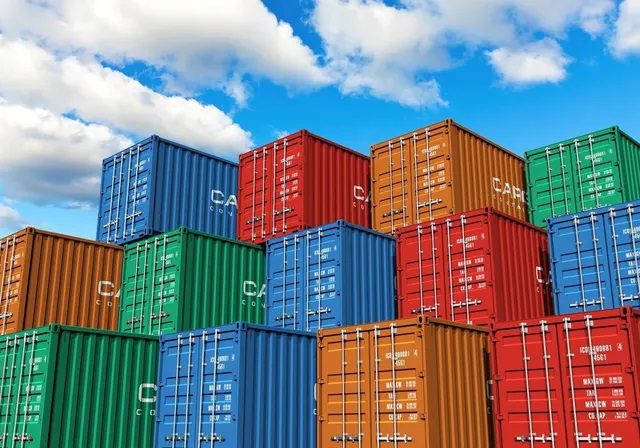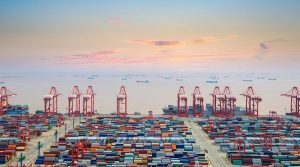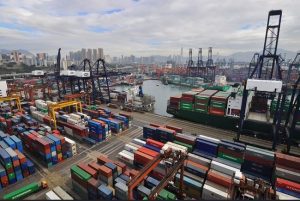BLOG
Exploring the Role of a Sea Freight Forwarder in the Global Supply Chain
- wanmeili
- 2023-05-23
The international trade market has been booming with the advancement in transportation and technology. The global supply chain is a network of transportation, communication, and commerce that enables businesses worldwide to interact with each other. One of the key players in this ecosystem is the sea freight forwarder. A sea freight forwarder as an integral part of the success of international trade, businesses around the world would not be able to thrive without their contribution. In this blog post, we will explore the role of a sea freight forwarder in the global supply chain.
In order to comprehend the role of sea freight forwarder within the worldwide logistics network, it is crucial to possess a precise perception of their characterizations and a thorough comprehension of their responsibilities and obligations that set them apart from others in the first.
Defining Sea Freight Forwarders
Sea freight forwarders are logistics companies that specialize in arranging and managing shipments of goods by sea from one place to another. The primary objective of a sea freight forwarder is to ensure that goods are shipped from the point of origin to the destination as efficiently and cost-effectively as possible.
A sea freight forwarder’s role starts from the moment the shipping process is initiated. They work with businesses to determine the type of goods that need to be shipped, the shipping lanes, and the mode of transportation. They also help businesses complete all the necessary customs and regulatory formalities. A sea freight forwarder also provides businesses with an accurate quote for the transportation of goods. Click to learn How To Quickly Get An International Logistics Quotation?
Characteristics of a Sea Freight Forwarder
Expertise in logistics and freight forwarding:
Sea freight forwarders are experienced and knowledgeable professionals who understand the ins and outs of the logistics industry, including legal regulations, customs requirements, and documentation processes.
Versatility in shipping:
Sea freight forwarders must have the ability to handle a wide range of shipping requirements, including different types of cargo, transportation modes, and destinations.
Communication skills:
Good communication skills are crucial for a sea freight forwarder to coordinate with shippers, carriers, and customs officials in different locations.
Attention to detail:
The job of a sea freight forwarder requires meticulous attention to detail to ensure that all documents are accurately completed and all safety and quality standards are met.
Problem-solving abilities:
Sea freight forwarders must be able to quickly and effectively resolve issues that arise during the shipping process, such as delays or damages.
Cost management skills:
An important part of the job of a sea freight forwarder is to manage costs to ensure that the shipping process is cost-effective for both the client and the forwarding company.
Customer service focus:
Sea freight forwarders must have a customer-centric approach and focus on building strong relationships with clients to ensure their satisfaction and repeat business.
Responsibilities of a Sea Freight Forwarder
Once a shipment has been confirmed, the sea freight forwarder starts the process of preparing the goods for shipping. They ensure that the goods are packed, labeled, and appropriately documented. They also ensure that the goods comply with all the necessary regulations and standards.
Sea freight forwarders work closely with shipping companies to ensure that the goods are loaded onto the ships and transported to their destinations on time. They also keep businesses updated on the status of their shipments and provide them with real-time tracking information.
In addition to managing the logistics of shipping goods, sea freight forwarders also offer other value-added services. These services include warehousing, inventory management, customs clearance, insurance, and packaging.
Functions of a Sea Freight Forwarder
The role of a sea freight forwarder is critical to the global supply chain. They ensure that businesses can ship their goods efficiently and cost-effectively anywhere in the world. Without the services of a sea freight forwarder, the transportation of goods would be a complex and cumbersome process. The global supply chain would be disrupted, leading to significant economic consequences for countries around the world. Check our article about 5 Common Supply Chain Mistakes to Avoid
In conclusion, the role of a sea freight forwarder in the global supply chain cannot be overstated. They serve as a middleman connecting businesses and vessel companies. They manage the logistics of shipping goods and offer other value-added services. They play a crucial role in ensuring that the global supply chain runs smoothly, and businesses can ship their goods anywhere in the world.
How to Become a Sea Freight Forwarder?
To become a sea freight forwarder, you will need to follow these steps:
- Education: You need to have at least a high school diploma or GED equivalent qualification. Some sea freight companies might require a bachelor’s degree in logistics, business, or supply chain management.
- Training: You can take courses in supply chain management, freight forwarding, logistics, and international trade. You can also get on-the-job training and mentorship from experienced freight forwarders.
- Licensing: Get a freight forwarder license from the Federal Maritime Commission (FMC) by submitting an application and meeting the commission’s requirements. You can also join freight forwarding associations and take their certification programs.
- Experience: Gain experience in the industry by working in entry-level positions in freight forwarding companies. You can work as a customer service representative, documentation specialist, or logistics coordinator.
- Network: Build a network of contacts in the industry, such as shippers, carriers, customs brokers, and other international freight forwarders.
- Start Your Business: After gaining enough experience and knowledge, you can start your own sea freight forwarding company. Develop a business plan, secure funding, and obtain necessary permits and licenses to operate legally.
- Stay updated: Keep yourself updated with the latest industry trends, regulations, and technology that can help you serve your clients better. Attend industry conferences and seminars and read industry publications to keep up-to-date with what’s happening in the world of freight forwarding.
What Freight Forwarding Services CXMM-SCM Logistics Offer
1. Express Delivery (door-to-door service)
DHL UPS TNT FEDEX ARAMEX and special line.
2. Airlines (door-to-airport service)
EK TK TG BA LH and so on.
3. Maritime transport (door-to-seaport service)
MAERSK/MSC/CMA CGM/COSCO/ONE/RCL/PIL/WHL/YM
4. Door to Door Pickup & Warehousing & Repack &Labeling &Distribution
5. Sourcing & Inspection
WE CAN HELP YOU SAVE 30% OF THE LOGISTICS COSTS!
If you are looking for people to deal with sea freight logistics, send us an email at wanmeili@cxmm-scm.com or call +8618692039982 to get in touch with a member of our team.



